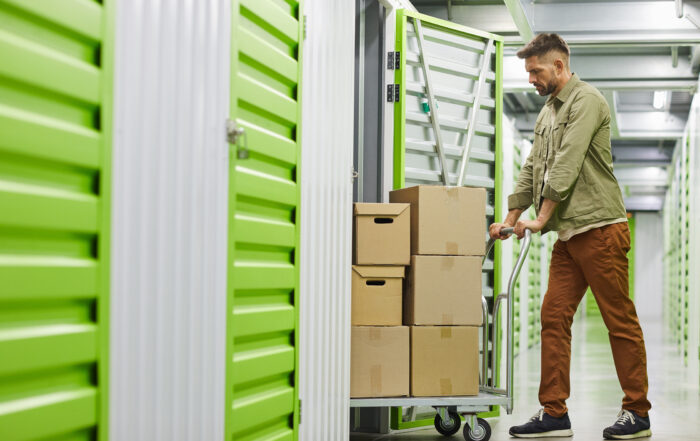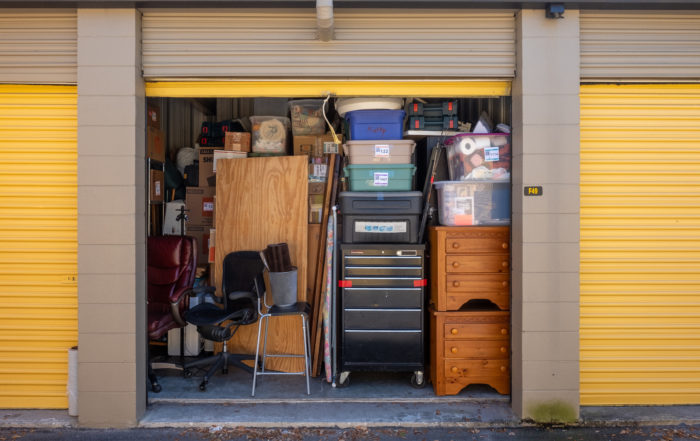Navigating Self-Storage Insurance Coverage Options
Shielding Your Investments: Navigating Self-Storage Insurance Coverage Options
When it comes to safeguarding your prized possessions and valuable assets, self-storage facilities offer a haven of security. However, even within the confines of these fortified fortresses, unforeseen events can occur, posing a threat to your stored belongings. This is where self-storage insurance emerges as a crucial safeguard, providing financial protection and peace of mind in the face of potential risks. Join us as we explore the realm of self-storage insurance, unraveling its coverage options and empowering you to make informed decisions about protecting your stored items.
Understanding Self-Storage Insurance
Self-storage insurance is a specialized form of insurance designed to cover the contents of storage units against a range of perils, including theft, fire, vandalism, and natural disasters. While self-storage facilities implement robust security measures to mitigate risks, insurance serves as a safety net, offering financial reimbursement in the event of unforeseen damage or loss.
Exploring Coverage Options
- Facility Insurance: Many self-storage facilities offer on-site insurance options tailored specifically to the needs of their tenants. These insurance policies typically provide coverage for stored belongings within the facility’s premises, offering peace of mind and financial protection against a variety of risks.
- Third-Party Insurance Providers: In addition to facility insurance, tenants have the option to explore insurance policies offered by third-party providers. These policies may offer more extensive coverage options and customizable features, allowing tenants to tailor their insurance plans to suit their unique needs and preferences.
- Comprehensive Coverage: When selecting a self-storage insurance policy, it’s essential to consider the scope of coverage provided. Comprehensive insurance policies typically offer protection against a wide range of perils, including theft, fire, water damage, and natural disasters, ensuring that your stored belongings are safeguarded against various risks.
- Valuation Options: Insurance policies for storage units often provide different valuation options for determining the coverage amount. While some policies offer actual cash value coverage, which takes depreciation into account, others provide replacement cost coverage, reimbursing the full cost of replacing the lost or damaged items, regardless of depreciation.
- Additional Coverage: Depending on your specific needs and concerns, you may opt for additional coverage options to enhance your insurance policy. These may include coverage for high-value items, specialty items, or specific perils not covered under standard policies, offering comprehensive protection for your stored belongings.
Protecting Stored Belongings: Best Practices
In addition to securing adequate insurance coverage, implementing best practices for protecting stored belongings is essential. Here are some tips to ensure the safety and security of your stored items:
- Proper Packing and Organization: Prioritize proper packing and organization of your stored belongings to minimize the risk of damage during storage. Utilize sturdy containers, protective materials, and appropriate packing techniques to safeguard fragile items and prevent shifting or breakage.
- Regular Inspections and Maintenance: Conduct regular inspections of your storage unit to identify any signs of damage, leaks, or pest infestations. Promptly address any issues to prevent further damage to your belongings and maintain a safe storage environment.
- Security Measures: Take advantage of the security features offered by the self-storage facility, such as surveillance cameras, access control systems, and on-site security personnel. These measures serve as deterrents to theft and vandalism, enhancing the overall security of your stored items.
- Documentation and Inventory Management: Keep detailed records of the items stored in your unit, including photographs, receipts, and descriptions. This documentation not only facilitates the insurance claims process but also helps you track your belongings and identify any missing or damaged items.
Self-storage insurance is a vital component of protecting your stored belongings against unforeseen risks and uncertainties. By understanding your coverage options and implementing best practices for safeguarding your stored items, you can ensure that your prized possessions are shielded from harm. Whether you opt for facility insurance or explore third-party providers, investing in adequate insurance coverage offers peace of mind and financial protection, allowing you to store your belongings with confidence. Remember, when it comes to protecting what matters most, proactive measures and comprehensive coverage are your best allies.
Recent Posts
Understanding Self-Storage Lease Terms: What to Know Before You Sign
Renting a self-storage unit is often one of those tasks that feels simple at first—pick a unit, sign a lease, move your stuff in. But if you’re like most people, the fine print on that [...]
What Not to Do When Using a Self-Storage Unit: 9 Common Mistakes to Avoid
Self-storage units are a convenient and affordable way to store everything from furniture and keepsakes to business inventory and seasonal gear. Whether you’re moving, downsizing, or just trying to declutter your space, renting a storage [...]
How to Keep a Storage Unit Clean and Tidy
A self-storage unit can be a lifesaver when you need extra space, but without proper organization and upkeep, it can quickly become cluttered. A clean and tidy storage unit not only makes it easier to [...]



